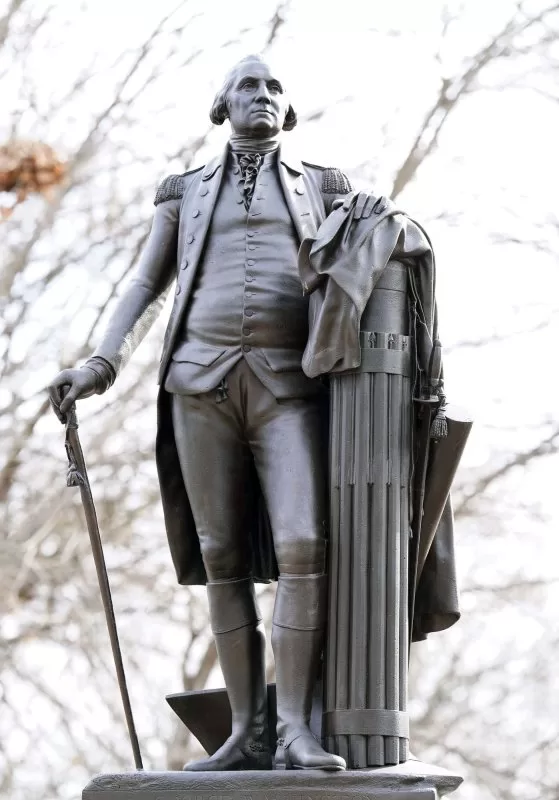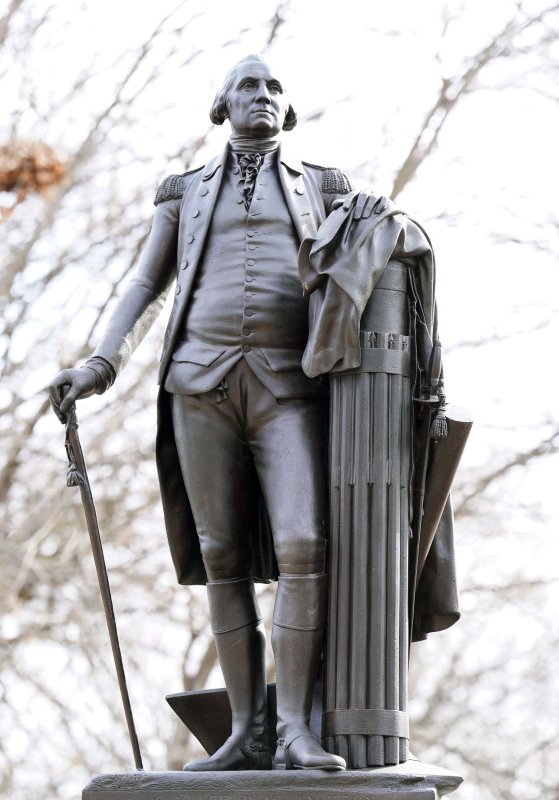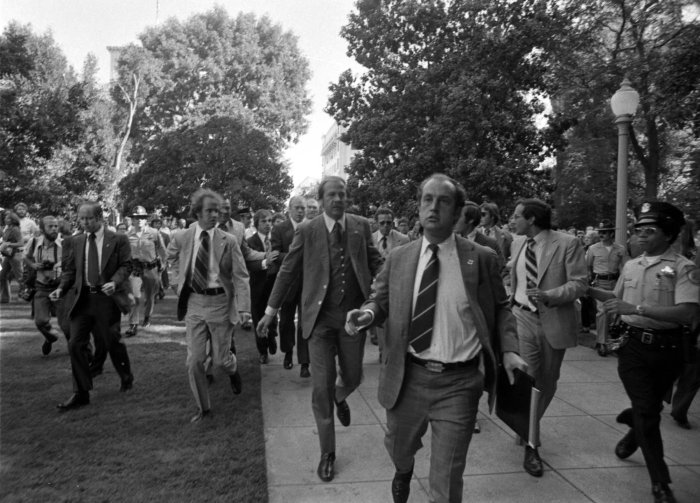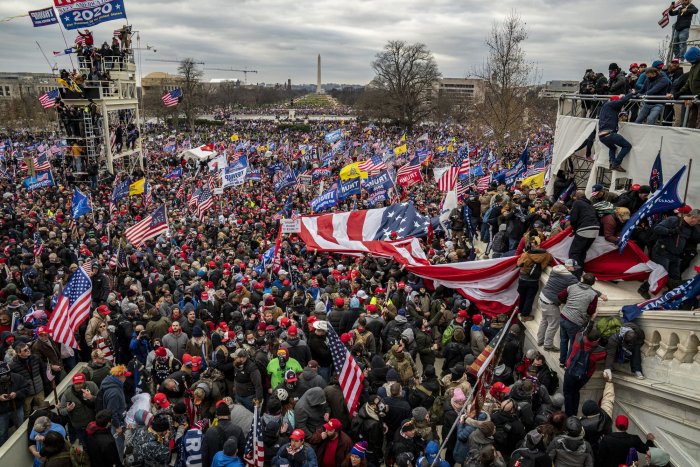1 of 3 | On September 5, 1774, the first Continental Congress convened in secret in Philadelphia, calling for a boycott of British goods and writing a petition to King George III to repeal the Intolerable Acts. Among those in attendance were future President George Washington, pictured. File Photo by Bill Greenblatt/UPI |
License PhotoSept. 5 (UPI) — On this date in history:
In 1774, the first Continental Congress convened in secret in Philadelphia, calling for a boycott of British goods and writing a petition to King George III to repeal the Intolerable Acts. Both efforts failed to resolve the Americans’ grievances, and the second Continental Congress less than a year later called for a revolution.
In 1836, Sam Houston was elected president of Texas.
In 1877, Oglala Sioux chief Crazy Horse was fatally bayoneted by a U.S. soldier after resisting confinement in a guardhouse at Fort Robinson, Neb. A year earlier, Crazy Horse was among the Sioux leaders who defeated George Armstrong Custer’s Seventh Cavalry at the Battle of Little Bighorn in Montana Territory.
In 1882, 10,000 workers marched in the first Labor Day parade — in New York City.
In 1939, President Franklin D. Roosevelt signed a proclamation declaring U.S. neutrality in World War II. The United States joined the war in 1941 after Japan attacked Pearl Harbor, Hawaii.
In 1972, Palestinian militants invaded the Olympic Village outside Munich, West Germany, and killed 11 Israeli athletes and six other people.
In 1975, Lynette “Squeaky” Fromme, a follower of mass murderer Charles Manson, failed in an attempt to shoot U.S. President Gerald Ford. Fromme was paroled in 2009 after 34 years in prison.
Secret Service agents rush President Gerald R. Ford towards the California State Capitol following an attempt on the president’s life by Lynette “Squeaky” Fromme — a disciple of Charles Manson — on September 5, 1975, in Sacramento, Calif. File Photo courtesy Gerald R. Ford Library
In 1978, President Jimmy Carter hosted Egyptian President Anwar Sadat and Israeli Prime Minister Menachem Begin at Camp David, Md., for Middle East peace talks that laid the groundwork for a permanent peace agreement between Egypt and Israel after three decades of hostilities. The summit resulted in the Camp David Accords, which earned Sadat and Begin the Nobel Peace Prize.
In 1995, France conducted an underground nuclear test at the Mururoa Atoll in the South Pacific. It was the first of several — all of which were met by protests worldwide.
In 2006, Katie Couric, longtime co-host of the NBC Today show, became the first solo female anchor on a major U.S. television network when she took over the CBS Evening News.
File Photo by John Angelillo/UPI
In 2014, U.S. officials said Ahmed Abdi Godane, leader of the Somalia-based Islamic militant organization al-Shabab, was killed in a U.S. airstrike. In 2012, the United States had posted a $7 million reward for his arrest.
In 2021, an elite national army unit detained Guinean President Alpha Condé — the country’s first democratically elected leader — and seized control of power. Mamady Doumbouya became interim president.
In 2023, Enrique Tarrio, the former head of the Proud Boys hate group, was sentenced to 22 years in prison for a domestic terrorism enhancement on a seditious conspiracy conviction. His was the longest sentence for any defendant tied to the Jan. 6, 2021, attack on the U.S. Capitol.
File Photo by Ken Cedeno/UPI




